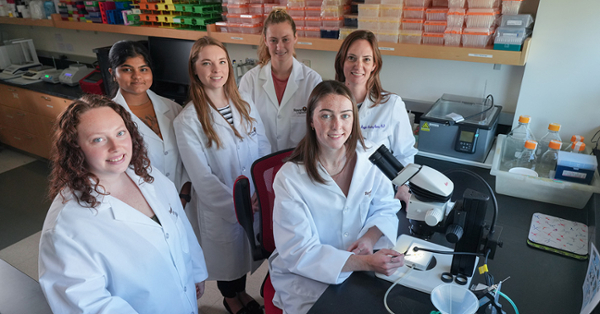PPPL Researcher Lan Gao Wins a DOE $2.75 Million Early Career Award to Develop Innovative Diagnostic Tools for Future Fusion Energy Devices
Princeton Plasma Physics LaboratoryPPPL research scientist Lan Gao received a $2.75 million Early Career Research Program Award from the U.S. Department of Energy for her research on innovative X-ray diagnostics to develop fusion energy. Gao recently became head of PPPL’s High Energy Density Laboratory Plasmas Division of the Discovery Plasma Science Department.
















